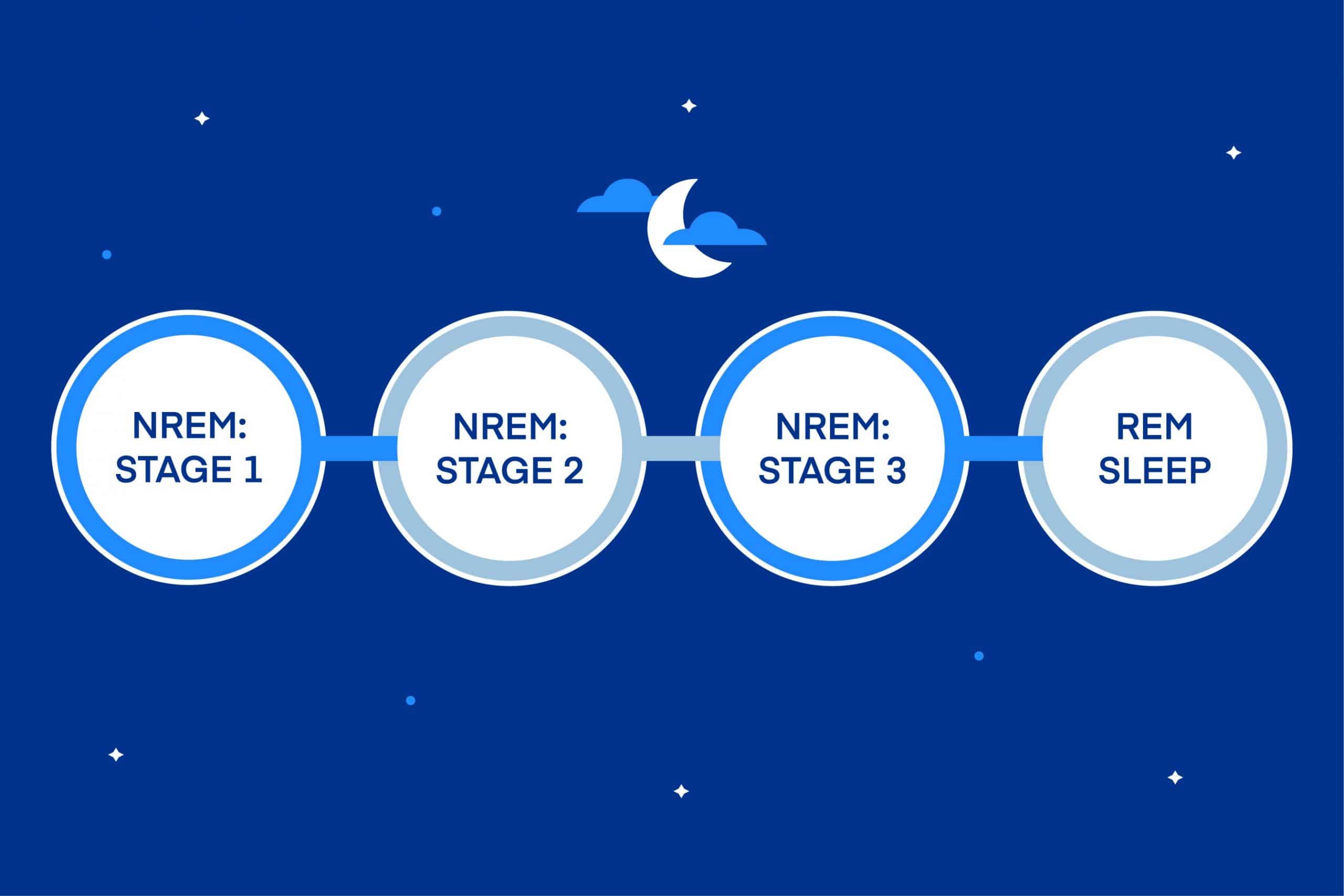Did you know that there are stages of sleep? Most people only experience 4-5. If you want to be well-rested, make sure your body is getting the rest it needs with adequate time in each stage of sleep.
Contents
What Are Sleep Stages?
The definition of sleep is “a natural, periodic state characterized by reduced responsiveness to external stimuli and the need for sleep.” However, different people have very different experiences when it comes time for them to close their eyes and enter a period of restorative slumber. Some individuals may fall asleep almost immediately while others struggle with constant wakefulness at night – but what exactly happens during a typical night’s rest? The answer lies within each person’s unique timeline as they transition through various phases of sleep known as “sleep stages.”
Sleep stages are determined by a person’s brain waves, which can be measured through an electroencephalogram (EEG).
What Are Different Sleep Stages?

Sleep stages are determined by a person’s brain waves, which can be measured through an electroencephalogram (EEG). There are five different sleep stages each stage defined by the unique patterns of your brain’s electrical activity as well as physiological changes to your body such as breathing rate and eye movement.
NREM Stage One
The first phase of sleep is known as “stage one” or non-rapid eye movement (NREM) sleep because there is no quick movement from this stage into another state. During this initial period, people calm down with their heart rates slowing and muscles relaxing. This is also when people can be woken up easily without feeling disoriented.
NREM Stage Two
The second stage of sleep, known as “stage two” or NREM sleep, is where most deep sleep occurs. Brain waves slow down even more and muscles relax completely. The body’s temperature begins to drop and breathing becomes slower. It’s harder to wake someone from this stage of sleep.
NREM Stage Three
The third stage of sleep, known as “stage three” or NREM sleep, is the beginning of a person’s deepest slumber. Brain waves are very slow with occasional bursts of activity called “sleep spindles” and “K-complexes.” Breathing becomes even slower and there may be temporary pauses in breathing, known as “apneas.”
Reverse Transition
The reverse transition from stage one to four is known as “reverse transition” and it’s the first step of REM sleep which typically occurs 80-120 minutes after falling asleep. During this time, breathing becomes more rapid and irregular with shallow breaths – but eyes remain still throughout most of this phase before darting back and forth rapidly during REM (rapid eye movement) sleep.
Advantages Of Sleep Stages
Sleep stages are necessary for several different reasons:
- they allow us to rest our minds and bodies
- provide energy for daily activities
- help us learn new information through memory consolidation
- boost mood
- produce hormones that regulate hunger, sex drive, metabolism, blood pressure, and body temperature
- helps keep the immune system healthy by increasing white blood cell production
- produce growth hormones that stimulate tissue and muscle regeneration
- trigger the release of chemicals linked to better memory, mood regulation, stress relief, and brain protection.
Conclusion
Sleep is vital for maintaining a healthy lifestyle. A lack of sleep can have long-term effects on your health, mood, and productivity. -What are the various stages of sleep? Sleep has four stages: light sleep, deep sleep, dreaming or REM (rapid eye movement), and slow-wave or delta waves. These different phases allow you to feel refreshed after waking up from getting enough hours of restful slumber at night; they also make it easier to fall asleep once again if interrupted by an alarm clock in the morning. If you struggle with insomnia because you wake up feeling like there’s no time to get back into that necessary state of unconsciousness before work starts calling, try creating a bedtime routine that includes relaxing activities.
The cycle of sleep is a natural process that regulates your body’s energy levels and can have an impact on how you feel. If you’re not getting enough restful sleep, try to make some changes in the way you approach it. These adjustments may include improving your diet, exercising more regularly, or learning new ways to manage stress. Lastly, avoid staying up late for prolonged periods of time as this will only worsen any existing issues with insomnia! We hope these tips help reduce sleepless nights and promote better overall health for everyone who reads them.
For more information, please contact MantraCare. Sleep is an essential part of our daily routine and it plays a significant role in maintaining a healthy body and mind. If you have any queries regarding Online Insomnia Counseling experienced therapists at MantraCare can help: Book a trial therapy session


